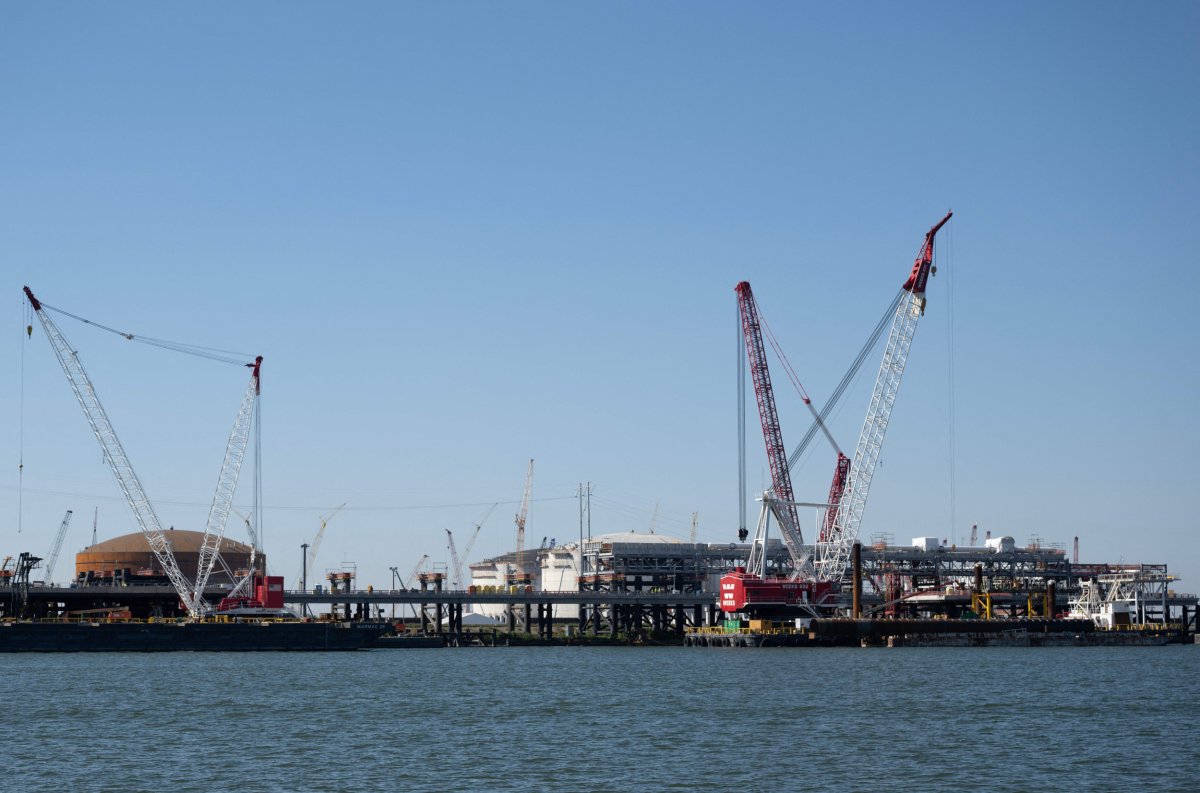Fossil fuels are dirty, unpopular, and quickly pushing the planet off a climate change cliff. Big Oil knows this. That's why they're now labeling the same dirty products they've been selling as "clean," highlighting industry's new strategy of delay and greenwashing instead of historic denial. The proliferation of "certified gas" schemes, which are often false and misleading, is case in point. These certifications put the climate at risk while coming for your money—attempting to charge higher premiums for so-called cleaner gas. But cooking the books won't hide the reality that the only way to ensure a safe, sustainable future is to break our reliance on fossil fuels as quickly as possible.
I, along with six of my colleagues, recently called on the Federal Trade Commission (FTC) to investigate and crack down on the deceptive greenwashing scheme that Big Oil is running behind our backs. They would like us to believe that they are leading on clean energy—but instead, they are misleading everyday people. For years, the fossil fuel industry has marketed gas as "clean" and touted its lower emissions when compared to its cousins, coal and petroleum. Instead of moving right to renewables—which are cheaper to build than new fossil fuels, even with added storage—they've sought to convince the public that gas is a necessary transition fuel. Gas companies have profited from this greenwashing, ignoring the known dangers their products pose to public health and the environment.
We now know the full climate impact of gas may be just as bad as coal, thanks to rampant leaks of methane—the climate super-pollutant responsible for up to nearly half of global warming. And extensive research has linked the extraction, transportation, and processing of oil and gas to health risks including cancer, respiratory illness, and infant mortality—especially in disproportionately low-income, rural, Black, brown, and Indigenous communities.
The industry would like us to believe it is cleaning up its act by certifying gas as "clean," "differentiated," or "responsible." Particularly in light of the Biden administration's recent pause in liquified natural gas (LNG) export approvals, gas companies might look toward these certifications as they scramble to make the case that gas remains in the public interest. But, as groups like Earthworks, Oil Change International, Environmental Defense Fund, Revolving Door Project, Gas Leaks Project, and Climate Nexus have found in various reports and communications, most certification companies use opaque methodology and unreliable technology. These companies currently operate in a Wild West environment, cherry-picking sites to certify and missing the majority of leakage events they claim to track.
This "clean gas" scam is already making its way into consumers' gas bills. Utilities in New York, Vermont, New Jersey, Michigan, Colorado, and Virginia have already purchased "certified" natural gas at a higher cost and received approval to pass those costs onto consumers—ranging from tens to hundreds of thousands of dollars a year. Utilities in my home state of Massachusetts are currently seeking approval to pass on "certified natural gas" costs to everyday ratepayers.

This is not new territory for the Federal Trade Commission—the body intended to protect Americans from corporate misinformation. The fossil fuel industry's marketing of "certified" gas mirrors the tobacco industry's promotion of "low-tar" cigarettes, designed to make consumers falsely believe they were getting a safer, cleaner product. The FTC eventually rescinded previous statements of certain cigarette filters lowering cancer risk, saying it would "not be a smokescreen for tobacco companies' shameful marketing practices." They should take the same stance on dangerous "clean" gas claims—because just like all cigarettes cause cancer, all fossil fuels cause climate change.
Every American deserves to breathe clean air, drink safe water, and trust that our homes can survive the rising tide of climate-fueled disasters. Ultimately, there is no science to justify their claim that U.S. gas—or any gas—is safer for the climate than affordable, reliable, and clean renewable energy. Only by phasing out fossil fuels and powering up renewable energy can we solve the climate crisis and protect the health and safety of our communities. Oil and gas companies, who have been fueling climate chaos for decades, cannot be trusted to put out the fire. Governments must step in, stop this false advertising, and protect the public.
Senator Edward J. Markey (D-Mass.) is a national leader on energy, the environment, and climate change. He is the chair of the Clean Air, Climate, and Nuclear Safety Subcommittee of the Senate Environment and Public Works Committee and chair of the Senate Climate Change Task Force. He has a long-standing record of energy legislative achievement and leadership, including passing the first-ever legislation to regulate the transportation of hazardous liquids by pipeline as an amendment to the Natural Gas Pipeline Safety Act in 1979 and as the Senate co-author of the Green New Deal resolution with Representative Alexandria Ocasio-Cortez (D-N.Y.).
The views expressed in this article are the writer's own.
Uncommon Knowledge
Newsweek is committed to challenging conventional wisdom and finding connections in the search for common ground.
Newsweek is committed to challenging conventional wisdom and finding connections in the search for common ground.
About the writer
To read how Newsweek uses AI as a newsroom tool, Click here.








